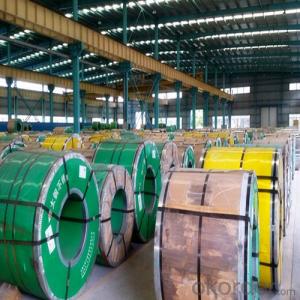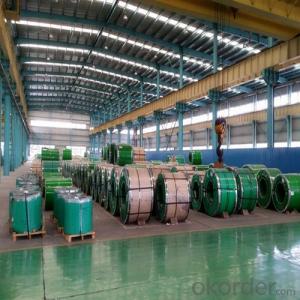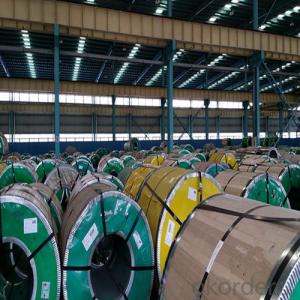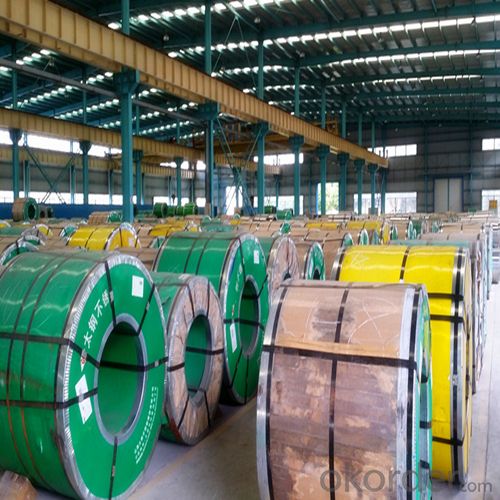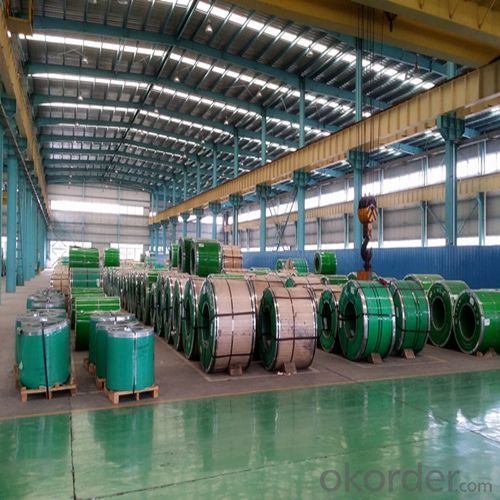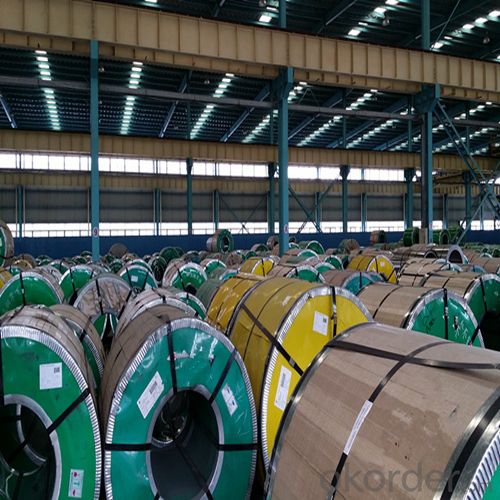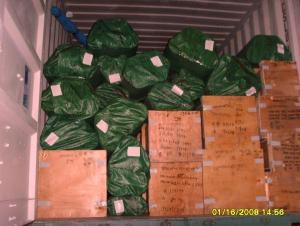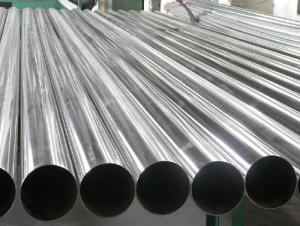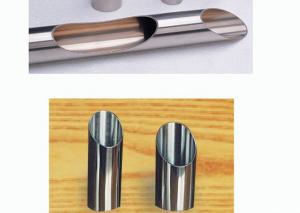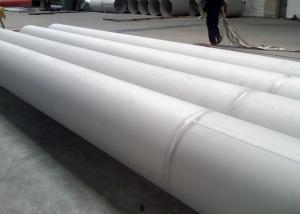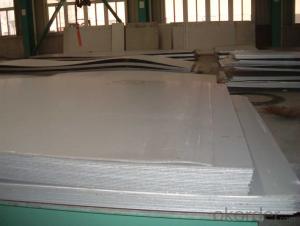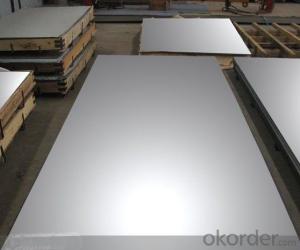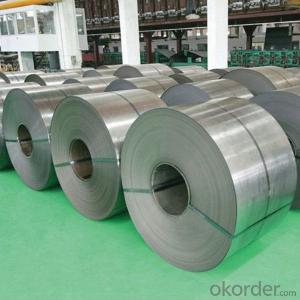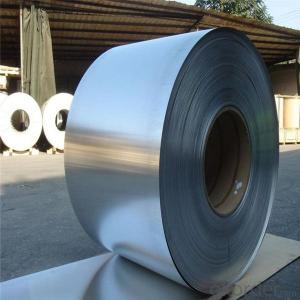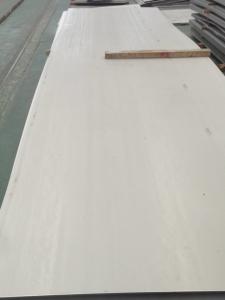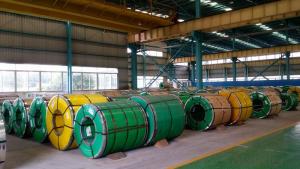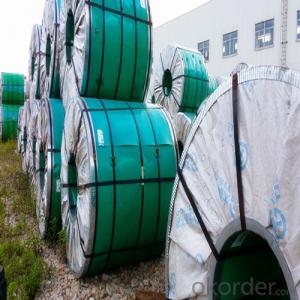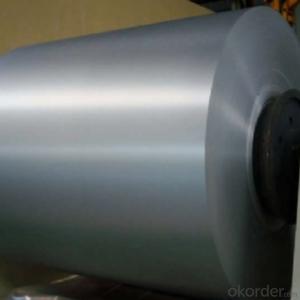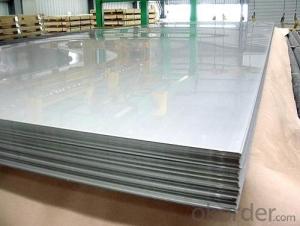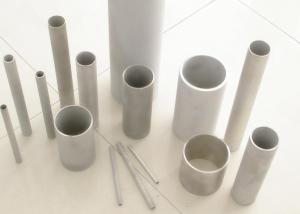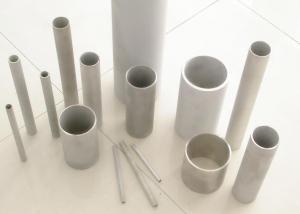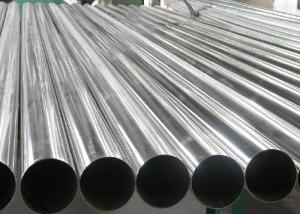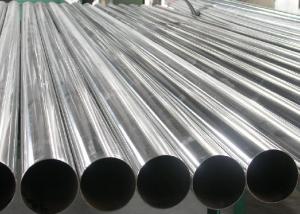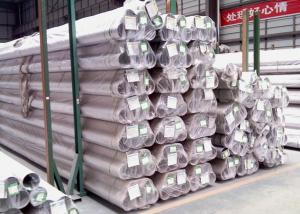Hot Rolled Stainless Steel Coil Grade: 304 Series BA
- Loading Port:
- Tianjin
- Payment Terms:
- TT OR LC
- Min Order Qty:
- 100 m.t.
- Supply Capability:
- 10000 m.t./month
OKorder Service Pledge
OKorder Financial Service
You Might Also Like
1.Structure of Stainless Steel Coil:
Stainless steel coil has excellent resistance to acid, heat, corrosion resistance, making it an ideal basis for the commercial application of materials. The range of stainless steel coil can be divided into 300 series and 400 series, the former belongs to nickel, with a capacity of more than 85%, which is chromium, the use of a smaller amount.Stainless steel coil 300 series in addition to decorative purposes, widely used in building materials, kitchen utensils, pipe and industrial uses, Among them 304 is the most representative;400 was due to hard material, usually made direct use or as a decorative stainless steel knives, forks and other utensils or mechanical parts.
2.Main Features of the Stainless steel coil:
1) High Quality: Using Latest automated control equipment to ensure the quality
2) Best Price: With most automated equipments to ensure our price is lower than the market
3) Fast Delivery: The delivery date within 20 das after get your order
4) Best Service: Our after-sell service team will help you to slove all the problems about the order
3. 304 Stainless steel coil Images
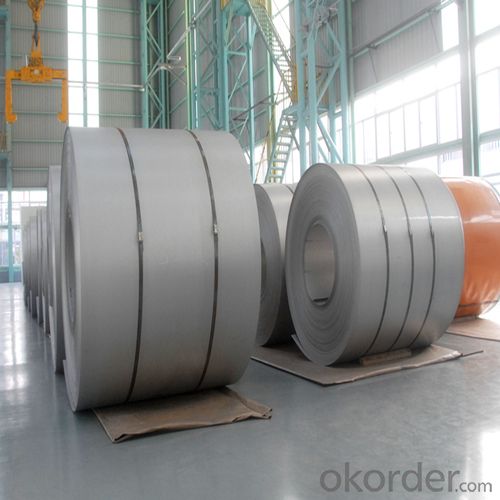
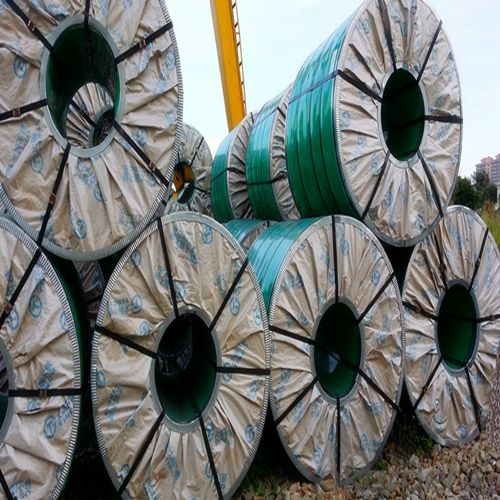
4. 304 Stainless steel coil Specification
Product name: 304 Stainless Steel Coil
Thickness: 0.2mm to 1.5mm
Technical: Cold Rolled
Width: 10mm to 1240mm
Type: 200 Series
Length: As customer's requested
Standard: JIS, SUS
Finish: BA, 2B, 8K, NO.3, NO.4, HL
MOQ: 100 MT
Ship Term: FOB Shenzhen port or CNF import port
Delivery Time: 15 to 20 day after the receive the deposit or LC
Packaging: By wooden pallet, wooden case or according to customer's request
5.FAQ
1) How to guarantee the quality of the products?
2) We have established the international advanced quality management system,every link from raw material to final product we have strict quality test;We resolutely put an end to unqualified products flowing into the market. At the same time, we will provide necessary follow-up service assurance.
3) How long can we receive the product after purchase?
4) In the purchase of product within three working days, We will arrange the factory delivery as soon as possible. The pecific time of receiving is related to the state and position of customers.Commonly 7 to 10 working days can be served.
- Q: Stainless steel plate net price, stainless steel plate net how much one meter?
- Stainless steel punching net is a kind of metal plate net made of stainless steel plate punched by punching machine according to certain pass and mould. Common material: stainless steel punching mesh, divided into several materials, there are 201, 304, 321, 316 and 316L.
- Q: Can stainless steel sheets be used for mezzanine flooring?
- Yes, stainless steel sheets can be used for mezzanine flooring. Stainless steel is a durable and corrosion-resistant material, making it suitable for high traffic areas like mezzanine floors. It offers strength and stability, making it a popular choice for industrial and commercial applications.
- Q: What is the elongation of stainless steel sheets?
- The elongation of stainless steel sheets refers to the ability of the material to stretch or deform without breaking when subjected to tensile forces. It is expressed as a percentage of the original length of the sheet that it can be stretched before fracturing occurs. The elongation of stainless steel sheets can vary depending on the specific grade of stainless steel and its manufacturing process. Generally, stainless steel sheets have a higher elongation compared to other metals, such as carbon steel, due to their higher ductility. However, the exact elongation value can vary depending on factors such as the grade, thickness, and tempering of the stainless steel sheet.
- Q: What are the benefits of using perforated stainless steel sheets in acoustics?
- When it comes to acoustics, there are several advantages to using perforated stainless steel sheets. Firstly, they have excellent sound absorption properties. The evenly distributed perforations in the sheets help to scatter sound waves, reducing their energy and preventing them from bouncing back into the room. This reduces echo and reverberation, creating a more comfortable and clear acoustic environment. In addition, these sheets can be customized to meet specific acoustic requirements. The size, shape, and pattern of the perforations can be adjusted to achieve different levels of sound absorption. This allows for precise control over the acoustics of a space, making it suitable for various applications such as concert halls, recording studios, theaters, or office spaces. Moreover, perforated stainless steel sheets are highly durable and long-lasting. They are resistant to corrosion, making them capable of withstanding harsh environments without deteriorating over time. This makes them suitable for both indoor and outdoor use, ensuring consistent acoustic performance for many years. Furthermore, these sheets offer an aesthetic appeal. The perforations can be designed in different patterns and sizes, providing a visually pleasing and modern look. This makes them a popular choice for architectural and design applications, where both acoustics and aesthetics are important. In conclusion, perforated stainless steel sheets offer excellent sound absorption, customization options, durability, and an attractive appearance. These qualities make them a versatile and effective solution for improving the acoustic performance of various spaces.
- Q: How do you remove adhesive residue from stainless steel sheets?
- To remove adhesive residue from stainless steel sheets, you can follow these steps: 1. Start by gently scraping off as much of the residue as possible using a plastic scraper or your fingernail. Be careful not to scratch the stainless steel surface. 2. Next, dampen a soft cloth with warm water and mild detergent or dish soap. Gently scrub the adhesive residue using circular motions. Avoid using abrasive cleaners or scrub brushes as they can damage the stainless steel finish. 3. If the adhesive residue persists, you can try using a non-abrasive cleaner specifically designed for stainless steel. Apply a small amount of the cleaner to a soft cloth and gently rub the residue until it lifts off. 4. For stubborn adhesive residue, you can make a paste using baking soda and water. Apply the paste to the affected area and let it sit for a few minutes. Then, use a soft cloth to gently scrub off the residue in circular motions. 5. Rinse the stainless steel sheet thoroughly with warm water to remove any remaining residue or cleaner. 6. Finally, dry the surface with a clean, soft cloth to prevent water spots and streaks. Remember to always test any cleaning method or product on a small, inconspicuous area of the stainless steel sheet before applying it to the entire surface. This will ensure that it doesn't cause any damage or discoloration.
- Q: What is the maximum size of stainless steel sheets?
- The maximum size of stainless steel sheets can vary depending on the manufacturer and specific requirements, but commonly available sizes range from 4 feet by 8 feet (1.2 meters by 2.4 meters) to 5 feet by 10 feet (1.5 meters by 3 meters).
- Q: Are stainless steel sheets resistant to scaling at high temperatures?
- Yes, stainless steel sheets are highly resistant to scaling at high temperatures.
- Q: Can stainless steel sheets be used for escalator steps?
- Yes, stainless steel sheets can be used for escalator steps. Stainless steel is a popular choice for escalator steps due to its durability, strength, and resistance to corrosion. It can withstand the constant foot traffic, heavy loads, and the wear and tear that escalator steps are subjected to on a daily basis. Additionally, stainless steel has a sleek and modern appearance, which adds to the overall aesthetic appeal of escalators. This makes stainless steel sheets a reliable and practical choice for escalator steps in various commercial and public settings.
- Q: Are stainless steel sheets suitable for chemical reactors?
- Yes, stainless steel sheets are indeed suitable for chemical reactors. Stainless steel is highly resistant to corrosion, which makes it an ideal material for handling various chemicals and withstanding harsh environments. Its durability, strength, and ability to maintain structural integrity under high temperatures and pressure make stainless steel sheets a reliable choice for chemical reactor construction. Additionally, stainless steel's non-reactive nature ensures that it does not contaminate or react with the chemicals being processed, ensuring the integrity and safety of the reactor.
Send your message to us
Hot Rolled Stainless Steel Coil Grade: 304 Series BA
- Loading Port:
- Tianjin
- Payment Terms:
- TT OR LC
- Min Order Qty:
- 100 m.t.
- Supply Capability:
- 10000 m.t./month
OKorder Service Pledge
OKorder Financial Service
Similar products
Hot products
Hot Searches
Related keywords
